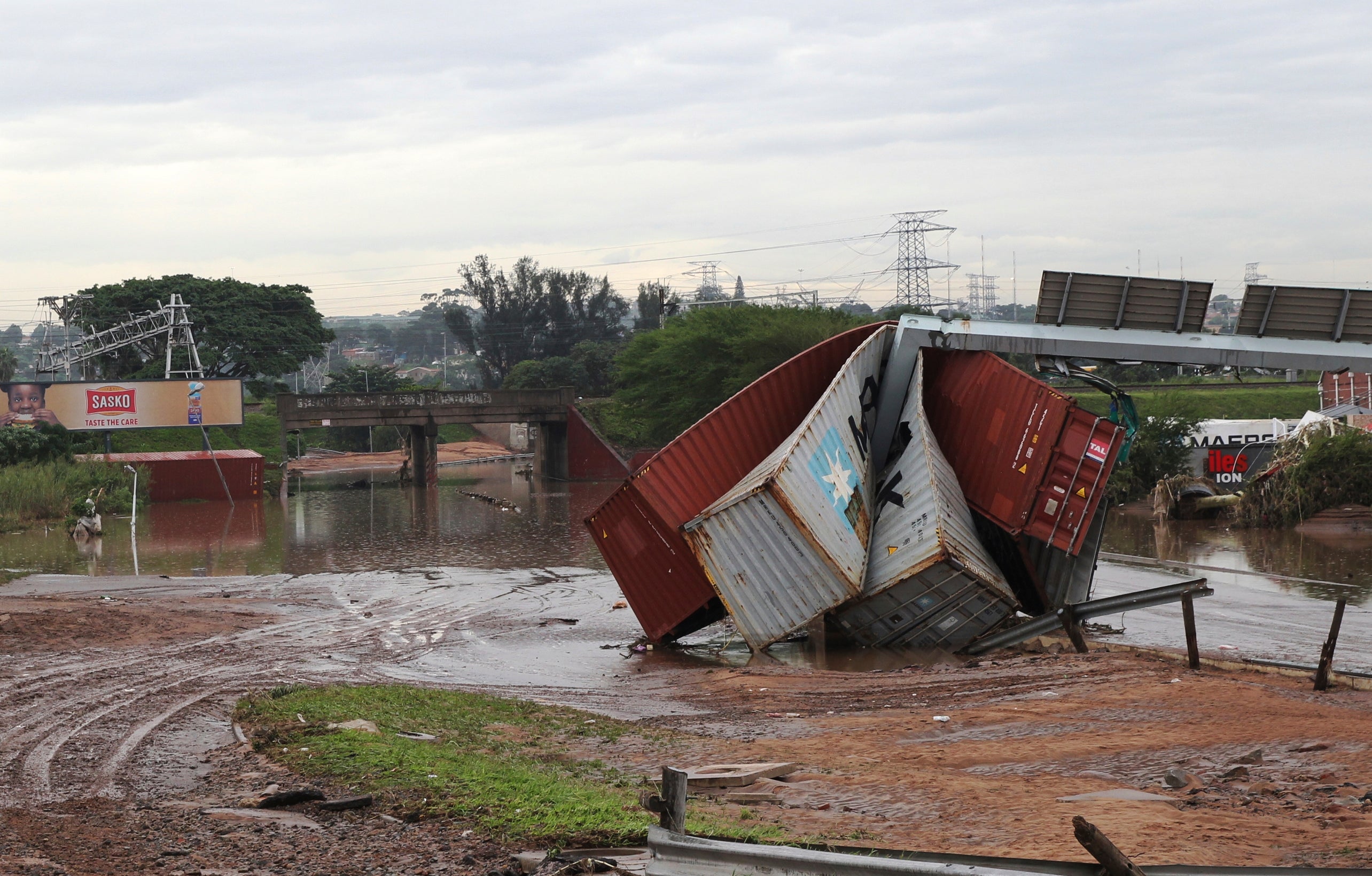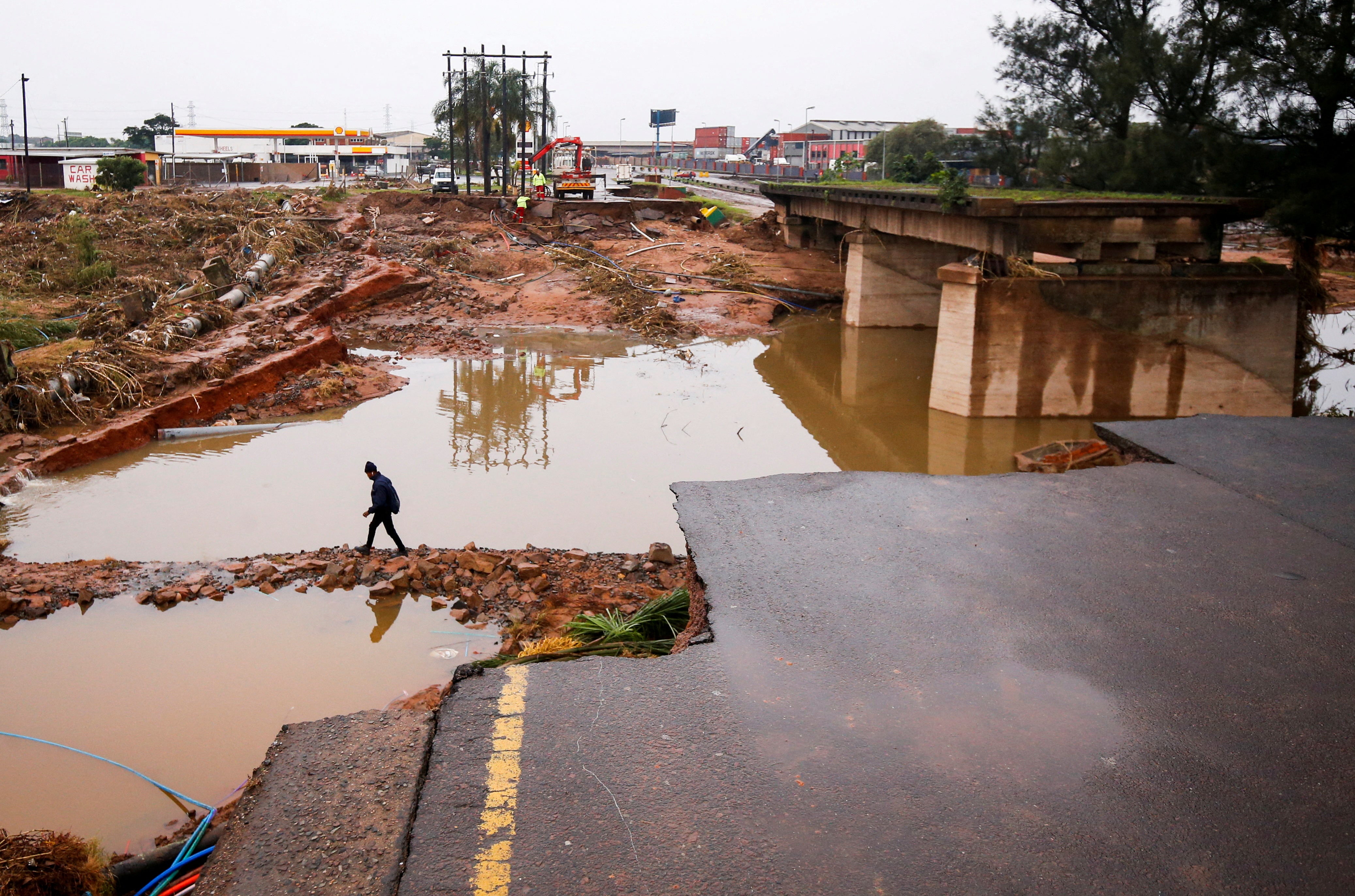
More than 440 people have died as devastating floods swept the South African province of KwaZulu-Natal.
And the death toll could rise further still, with 63 people still missing according to local authorities.
The flooding, triggered by heavy rains, left a trail of destruction, after some areas saw a month’s worth of rainfall in one day.
Thousands of South African soldiers will deployed in the province to help with the rescue effort. A week after the torrential rains began, the South African National Defence Force (SANDF) said on Monday it had been instructed to activate 10,000 troops for tasks including mop-up work and transporting aid.
The government has declared a nationwide state of disaster.

In an address to the nation, the country’s president, Cyril Ramaphosa, announced a series of measures aimed at helping those affected and rebuilding work.
Officials have described the floods as some of the worst to ever hit the KwaZulu-Natal province. Premier Sihle Zikalala said that nearly 4,000 homes were destroyed and more than 8,000 were damaged, most in the coastal city of Durban and its surrounding areas.
One woman in Durban, Amanda Acheampong, said the bodies of four of her relatives had been recovered near a river bank, while six were still missing.
“The neighbours’ house collapsed first, which then resulted in our family home collapsing and washing everyone into the river. Four bodies were discovered along the riverbank – my sister and her three grandkids. It’s horrible,” Ms Acheampong was quoted by South Africa’s News24 website as saying.

“We’re still looking for the remaining six. We are hopeful they might still be alive, but at this stage it doesn’t look good,” she added.
In a statement, SANDF said its troops would bolster search and rescue operations, as well as assist in transporting aid to victims.
Army plumbers and electricians would also work in areas that have been without water and electricity for a week, it added.
Some communities are completely cut off because roads and bridges have collapsed.
“We don’t have electricity in many, many areas,” said Imtiaz Syed, the leader of the Active Citizens’ Coalition.
Nearly 300 schools and some health facilities have also been damaged.






